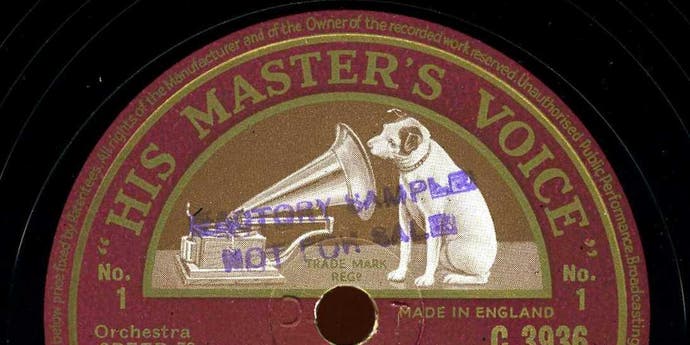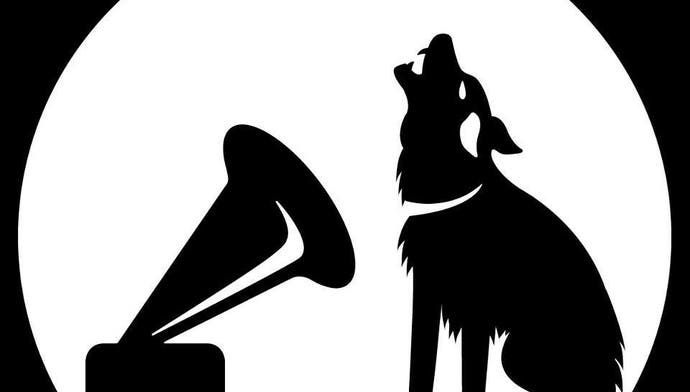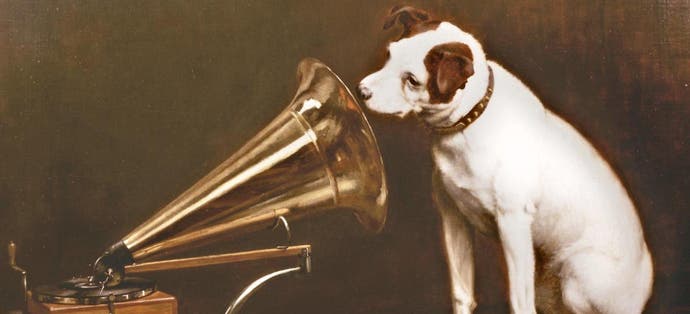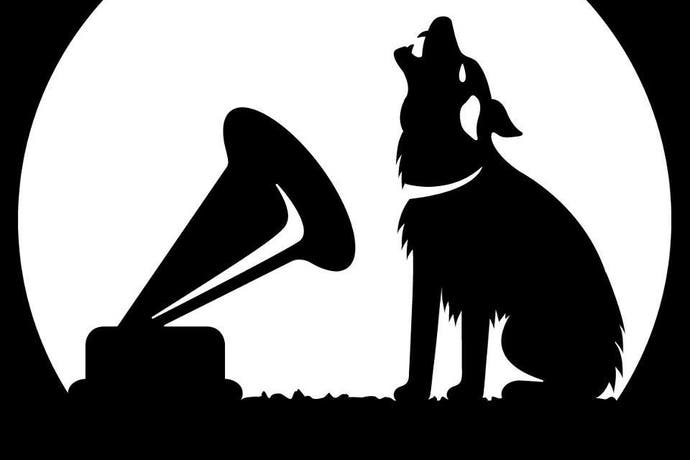HMV: What now?
"Sometimes you have to have that heart attack, that stroke, to say, 'Hold on, I need to change.'"
Last year it was GAME in dire straits, now it's HMV (and Blockbuster, but that will have to be a different story). Administrator Deloitte has taken control of HMV, refusing gift vouchers, turning off HMV.com but keeping stores open. HMV doesn't see it as "the final chapter", but acknowledges "it might have to be a slightly different future". What HMV and Deloitte are hoping for - like GAME was a year before it - is a buyer.
Back when GAME was up the creek, I wrote a piece about the frighteningly wide-reaching ramifications of what would happen if GAME sunk. If HMV falls, similar things could happen. But for video games specifically the consequences are less dire.
"It's less serious because it's more serious for the music and film industry," Andy Payne - boss of budget PC game publisher Mastertronic, among many other things - tells me. And he happens to be connected to this HMV situation in a couple of ways.
One way he's connected is HMV owing Mastertronic money, because HMV sells Mastertronic's games. "From our perspective anything that was owed to us before the administrators came in: that is effectively now a bad debt - that's pretty much dead money," he says. "That's going to be the case for everybody who's been trading with HMV who hasn't been paid."
The "good news" for Mastertronic is that any of its games sold by HMV now the administrators are in, Mastertronic legally must get money for. "It's not like they've got our stock and are selling it and we're not going to get anything," said Payne. "From now on, everything sold we get legally paid for." How this will affect HMV stocking big new game releases we're not sure. So far, no absentees have been announced.
HMV collapsing isn't as bad for games as GAME collapsing because HMV deals in music and films as well. HMV grew up as a music business 90 years ago - it was even a music label at one point. Think of all the companies involved in a film or a music album or a game getting into a shop. If HMV is their biggest high street outlet and they're not getting their Christmas money, the knock-on effect of that could be felt far and wide.
"Profit is a dangerous thing; profit can hide changes that are coming."

Nevertheless, it has been those film and music companies propping HMV up for a while now. HMV was on the brink a year ago when GAME went over. No one is particularly surprised now that the banks have presumably had enough.
"HMV as a chain has been struggling for many years," analyst Piers Harding-Rolls, who covers this sector for Screen Digest, tells me.
"If you look back, historically the company has been through a number of periods of uncertainty in terms of repositioning itself. It went from a music retailer to being a more entertainment-based retailer to spreading its wings into games retail - away from a PC retailer to being quite a significant player in terms of console sales. And then obviously it made a decision to shift into pre-owned, which was hit and miss for the company.
"It's been through a lot of re-juggling of its product coverage over the years, all with the idea of trying to bolster its margins and improve its share of the high street. That's been going on for a good five years; I would categorise it as not being in the best of health for a good few years."
While HMV struggled with its identity, online retail and digital distribution erupted. Amazon, Steam, iTunes, Spotify, Netflix, Lovefilm, supermarkets: HMV is trying to operate in areas other companies either do better or offer new and more convenient ways to experience entertainment.
Why didn't HMV do anything about any of this before it was too late? Philip Beeching worked on the HMV advertising account for 25 years. He shared his insider's account of blinkered arrogance at HMV that in 2002, saw him and a business partner berated by a new HMV boss for suggesting that "the three greatest threats to HMV are online retailers, downloadable music and supermarkets".
"Profit is a dangerous thing," warns Andy Payne. "Profit can hide changes that are coming. If you're making money from retailing games or music or films it's all great, but directionally you know the industry you're in is changing.
"Sometimes it's difficult to walk away from something when you're making money. Why would you? You're responsible to your shareholders so you've got to keep on delivering."
HMV ignored the warnings until it was too late. Now HMV has (as of December 2012) an underlying debt of £176 million and is making it worse with a six month loss of £36 million.
"We spent a lot of our time working with HMV to launch their PC download offering via Get Games..."

HMV hasn't been doing nothing recently, though, which brings us back to Andy Payne's other connection to HMV's current situation: digital distribution. Andy Payne also runs PC games download shop Get Games, and it was Get Games that built a PC games download store for HMV.
"HMV were very slow to digital, and you probably know that Get Games had built their store for them and we were just soft-launching when now they've suspended everything," says Payne, unaware that I'm unaware.
He sat down with HMV and told the company it was "crazy" it wasn't offering PC downloads. HMV hadn't had time to do it before, nor the expertise, and was apparently distracted trying to make its old business model work. "There is that phrase 'zombie company'," says Payne. "It's like they're too busy fighting a model that's slipping away to see where they should be going.
"We spent a lot of our time working with HMV to launch their PC download offering via Get Games, and that's part of their - or was part of their - site. And we all agreed 'let's get through Christmas', because they were busy with physical goods, and in the new year we'll sit down with their team and go for the hard-launch, because we'd soft-launched it and traded and we've sold things without anyone knowing about it!"
What will happen to that store now, I don't know. But it brings us neatly to the question of what will happen to HMV now - can it be saved?
"Do I think they'll carry on?" mulls Payne. "I actually think that HMV the brand and the stores probably will; there'll be a buyer found and I hope it's somebody that cares.
"I don't believe that all the shops will be kept open. Some people, hopefully not all, will lose their jobs.
"The HMV brand still has pretty good equity," adds Harding-Rolls, "certainly with a segment of high street shoppers or consumers in general.
"Yes, there is an opportunity for the HMV brand to maintain itself and go on trading in the future, but it will be a much more slimmed down operation and that means, inevitably, we're going to see a good few stores closing and the least profitable shops cut off of their portfolio of retail estate."
HMV has 235 shops in the UK and employs 4350 people. Reducing real-estate rental fees and wage bills seems to be an inevitable step towards balancing the books.
"But it's not over for HMV," says Payne. "I wouldn't say it's dead in the water by any means."
"Sometimes you have to have that heart attack, that stroke, to say, 'Hold on, I need to change.'"

Even if HMV survives the storm and finds a buyer, there will still be everything to do. It will still be the business that flopped. And while a new generation of consoles will reinvigorate at least game sales for a while, what will reinvigorate the evaporating sales of music and films in boxes?
"Sometimes you have to have that heart attack, that stroke, to say, 'Hold on, I need to change,'" says Payne. "And if you see what's happened at GAME... Let's be fair, GAME are in a much better place today than they were this time last year.
"They communicate with their supply chain, they communicate with their customers, they have less stores to open up at 9 o'clock and close at 6 o'clock at night. GAME have had a new lease of life as a result of that electric shock treatment in April last year. HMV: probably they're in need of the same."
GAME is actually sniffing around some of HMV's stores, eyeing a reported 40 sites it could bolster its storefolio with.
"One would hope that a company like GAME is not resting on its laurels," cautions Harding-Rolls, "and it's looking at ways to reinvent itself; it's not just falling back into its old position of thinking 'well we can just rely on retail sales as the next generation of retail sales come along'.
"There's likely to be a pick-up when that happens, but if we're going to build high street operations that last into the long term, those companies have got to look to reinventing themselves and repositioning themselves in terms of the newer opportunities that are coming along."
One day Andy Payne would love to see HMV return to its roots and become an experience, a hang-out. He remembers seeing Blondie and The Clash play at HMV.
"Maybe HMV would consider something where they could be a discovery service for games developers, for indie filmmakers and for bands," brainstorms Payne. "And maybe that's not 9 o'clock in the morning; maybe HMV opens up at lunchtime and it goes on until early-evening."
"[HMV] will have to continue their evolution," he says, "but probably at a revolutionary pace. Everything speeds up now because they cannot afford, literally, to waste any more time."









